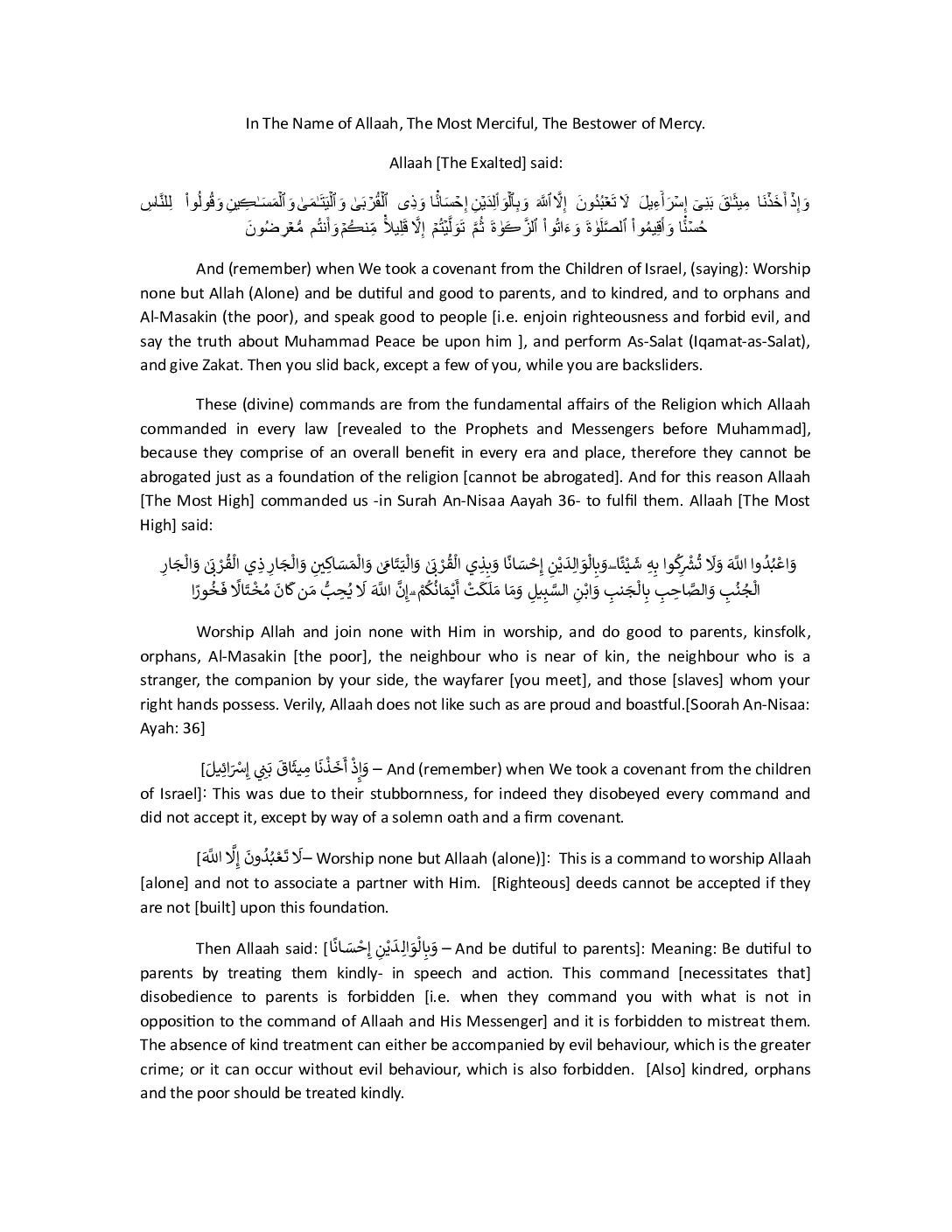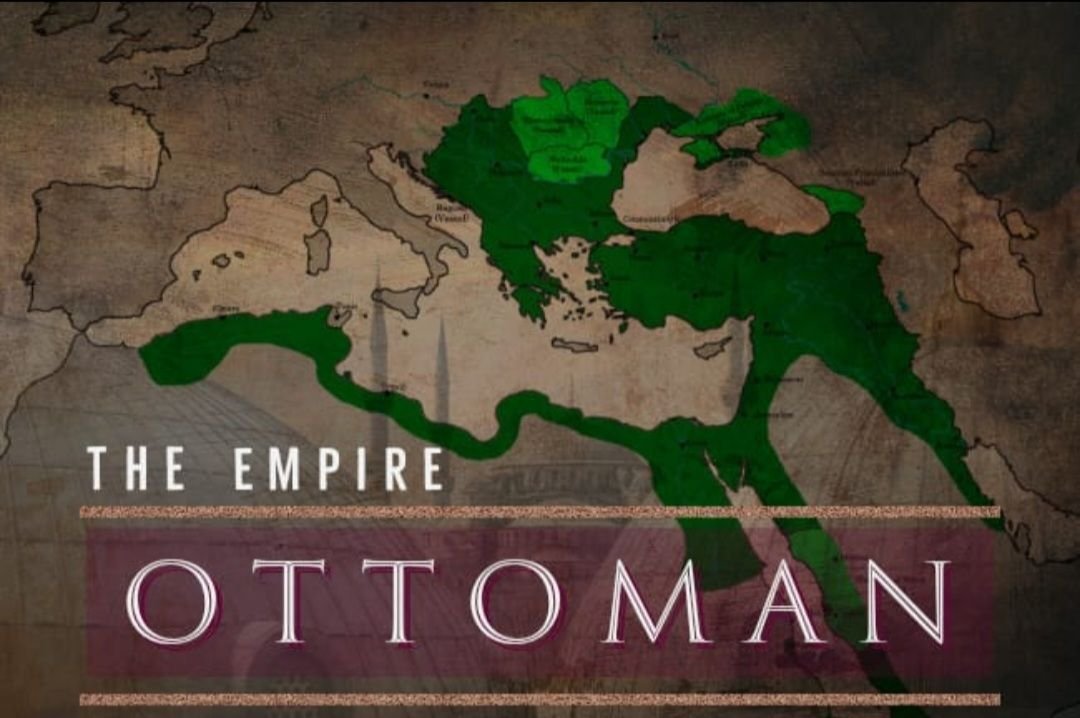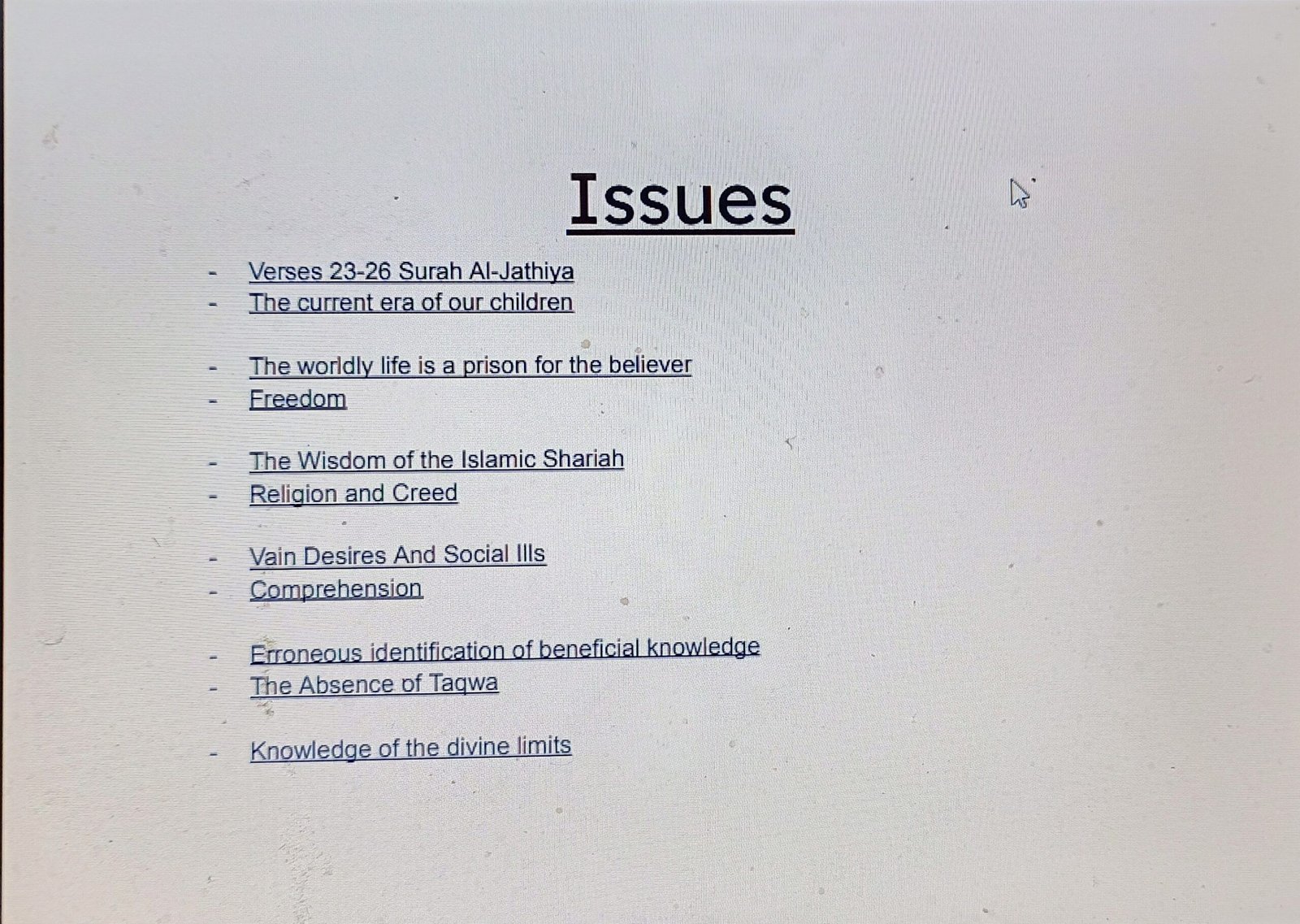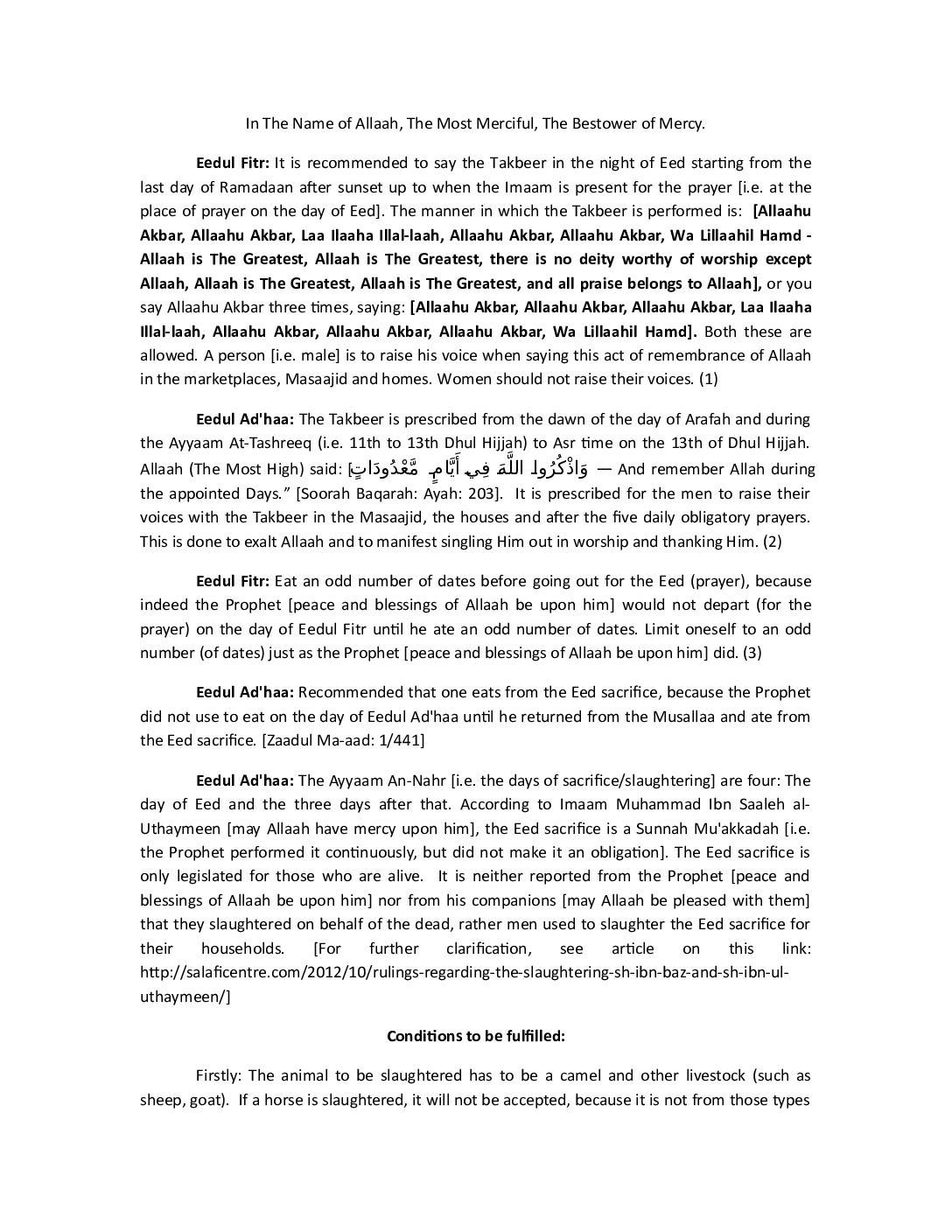Selected Prophetic Reminders and Advice
بسم الله الرحمن الرحيم
Below are a variety of narrations wherein the Messenger of Allah
– عليه الصلاة و السلام- is exhorting us with that which is beneficial for us and pleasing to Allah -سبحانه تعالى- :
The Messenger of Allah said
– عليه الصلاة و السلام-
The most beloved slaves of Allah to Allah are the best of them in manners
The Messenger of Allah said
– عليه الصلاة و السلام-
Be merciful to those who are on the earth and the one who is above the heavens will be merciful to you
The Messenger of Allah said
– عليه الصلاة و السلام-
The best of imaan is: patience and forbearance
The Messenger of Allah said
– عليه الصلاة و السلام-
The heaviest thing on the scales are good manners
The Messenger of Allah said
– عليه الصلاة و السلام-
Not from us is the one who is not merciful to our youth and does not respect our elders
The Messenger of Allah said
– عليه الصلاة و السلام-
Whoever does not show mercy to the people, Allah does not show him mercy
The Messenger of Allah said
– عليه الصلاة و السلام-
Indeed Allah is beautiful and he loves beauty
The Messenger of Allah said
– عليه الصلاة و السلام-
Whoever does not thank the people then he has not thanked Allah
The Messenger of Allah said
– عليه الصلاة و السلام-
Whoever is deprived of kindness and gentleness is deprived of all good
The Messenger of Allah said
– عليه الصلاة و السلام-
From the best of Islaam is a man who leaves that which does not concern him
The Messenger of Allah said
– عليه الصلاة و السلام-
The most complete of the Muslims in imaan are those best in Akhlaaq
Saheeh Al-Jaami’ As-Sagheer Shaykh Al Albaani










